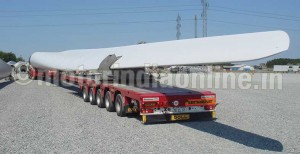 When it comes to automobiles and transportation, the Indian market has attracted the attention of leading global players across different segment be it passenger cars, trucks, buses and so on. In this regard, one segment which has seen growing global interest with the entry of numerous heavy-weights is the heavy-duty and ODC transportation equipment which includes products such as self-steering trailers, semi-trailers, platform semi-trailers and combination trailers, among others.
When it comes to automobiles and transportation, the Indian market has attracted the attention of leading global players across different segment be it passenger cars, trucks, buses and so on. In this regard, one segment which has seen growing global interest with the entry of numerous heavy-weights is the heavy-duty and ODC transportation equipment which includes products such as self-steering trailers, semi-trailers, platform semi-trailers and combination trailers, among others.
Among a battalion of leading global names eyeing a share of the Indian market in this segment is the German firm DOLL Fahrzeugbau AG. However, DOLL has taken important steps to gain access to the Indian market in a big way, as indicated by the partnership recently entered into by it with the Chandigarh-based JCBL.
We find out more about DOLL and its plans for India in an exclusive interaction with Mr. Patrick Spitznagel, Head – Business Unit Heavy Haulage, DOLL Fahrzeugbau AG.
Excerpts:
We have heard about the brand DOLL and its products in the past. Please give us a brief background of your company.
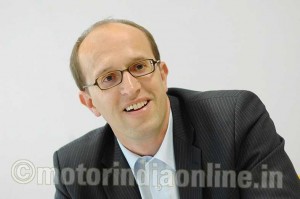
When Mr. Johann Georg Doll founded a wagonworks company in Oppenau, Germany, in the year 1878, he never thought in his wildest dreams that the company would grow into a hi-tech specialist that sells vehicles throughout the world.
With the foundation of the ‘Dollenschmiede’ in 1878, all types of carriages and forestry tools such as axes were produced under the brand. Mr. Emil Doll was the second generation entrepreneur to take over the company in 1910 and during the course of motorization in the 1920’s, he recognized the needs of the time and produced added structures and trailers for the newly-developed motorized commercial vehicles.
With Emil, Heinrich and Friedrich Doll, the third generation members became part of the company management in 1948. Under their leadership, the company continuously developed further and began the export of timber transport vehicles to Africa in the 1950’s. These export activities lay the foundation for our current global network of partners and service workshops in various locations around the globe.
DOLL celebrated its 100th anniversary in 1978 in the large presence of its employees, customers and suppliers, when the employees who have contributed a lot for the company’s progress were duly honored.
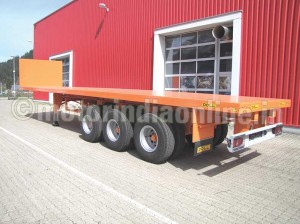 Between the 1970s and 1990s, the company continually extended its product range for customized and special vehicles. Since 1985, DOLL’s operations are classified into three business areas, namely, timber transport, heavy haulage and mobile systems.
Between the 1970s and 1990s, the company continually extended its product range for customized and special vehicles. Since 1985, DOLL’s operations are classified into three business areas, namely, timber transport, heavy haulage and mobile systems.
In 1999, Ms. Brunhilde Rauscher-Doll, the great grand-daughter of the company founder, took over the management with the management board extended in 2003 to bring in Dr.-Ing. Manfred Münch. Our Oppenau production site was developed and expanded further with a new final assembly hall being opened in 2006.
The year 2008 marked another important milestone in the 130-year company history with DOLL Fahrzeugbau GmbH being converted into DOLL Fahrzeugbau AG, a family-owned public company that is not listed on the stock exchange. In 2009, DOLL opened a new production site by taking DOLL Sachsen GmbH in Mildenau, Germany, into operation, where part of the DOLL product range is currently produced.
Another large development phase was successfully implemented in 2009 with parts manufacturing as well as office and recreational rooms being accommodated in a new 7,200 sq.m. hall at its production facility.
What about your current presence in the Indian market? Have you already started selling products to customers in India? How do you plan to cater to the requirements of the market, moving forward?
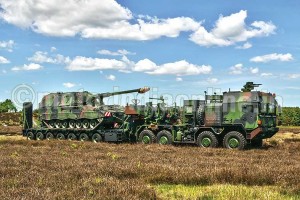
So far, we have only delivered second-hand heavy-haulage trailers for the wind energy business in the Indian market. In India, we only see one way to succeed and that is to have a very strong local partner. Luckily, we found JCBL from Chandigarh and signed a know-how and license agreement for a certain range of general cargo trailers with them.
Another important focus for us is the military business for truck bodies and heavy equipment transporter together with the local OEM companies. The third line of activities which would be important for us is sophisticated heavy-haulage trailers mainly for the windmill sector, products that would be imported from Germany.
Could you please give details of the manufacturing facilities across the world, along with the production capacities?
DOLL has two manufacturing facilities in Germany with a total of 410 employees. We are a shareholder of CTVDOLL in Thailand. The capacity of our German factories is about 2,000 truck bodies and 1,000 trailers, mainly with hydraulic steering and high-end specifications.
What do you think is the reason for the success of your products globally? What according to you are the strengths of DOLL?
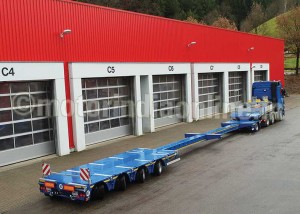 Our global success is based on our core know-how like steel design, hydraulics, pneumatics and electronics. Our products are very famous for their stability, longevity, excellent steering and suspension systems which are developed in-house. Our body and trailer designs are strong and have certain reserves for overloading. In terms of quality, DOLL really is a premium manufacturer and the leader in its segments.
Our global success is based on our core know-how like steel design, hydraulics, pneumatics and electronics. Our products are very famous for their stability, longevity, excellent steering and suspension systems which are developed in-house. Our body and trailer designs are strong and have certain reserves for overloading. In terms of quality, DOLL really is a premium manufacturer and the leader in its segments.
As you would have understood from your experiences, India is a price-sensitive market. How do you plan to address the divide between the initial cost and life cycle cost which is prevalent to a large extent in India?
When we had the first discussions and meetings with Indian transport companies, we tried to convince them of product quality – ‘Made in Germany’. But we learnt soon that we only have a chance (of succeeding in India) with a very high percentage of localization. Therefore, we changed our focus and tried to find a good local partner. With JCBL, we found a very qualified and family-owned company which fits extremely well into our profile.
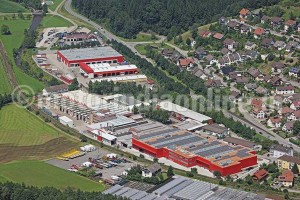 It is true that the Indian transporter is still focusing on the initial purchasing price, but the new vehicle OEMs in the market like MAN and BharatBenz are trying very hard to change this attitude with their latest products in the Indian market. These OEMs can prove that the success in the transport industry is based on the total cost of ownership (TCO) and efficiency rather than the lowest initial price.
It is true that the Indian transporter is still focusing on the initial purchasing price, but the new vehicle OEMs in the market like MAN and BharatBenz are trying very hard to change this attitude with their latest products in the Indian market. These OEMs can prove that the success in the transport industry is based on the total cost of ownership (TCO) and efficiency rather than the lowest initial price.
How do you qualify your products for challenging markets such as India? Do you completely redesign new products or do you make modifications in your existing global range of products?
For India, we mainly use the existing designs that are proven for decades in countries with poor infrastructure. Nevertheless, we make minor design changes for the Indian transporters in order to adapt to the local conditions.
What are your views on the Indian logistics and transport industry and how do you see these sectors develop in the next few years?
We are convinced that India will grow very much in the future. With the increasing industrialization, there will be a huge demand for world-class and efficient logistic solution and services.
What are your immediate and long-term plans for the Indian market?
For now, our target is to have the first locally produced trailers on the Indian roads in Q3 or Q4 of 2014. We are also expecting some good results from the Defence sector.
DOLL focuses on four business units:
• Logging (transport of wood)
• Heavy haulage including military applications
• Ground support equipment (mainly catering high-loaders)
• Service (spare parts, second hand vehicles, training and support of global service network)